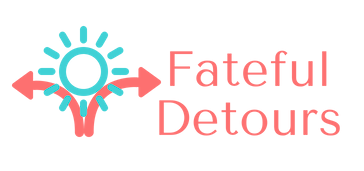Hello. I'm Dr. Kate
I want to share my experience, strength and hope.I used to have a hard time saying no to work.
I graduated from a U.S. medical school in 1990 and completed a Pediatrics residency in 1993. After my training, I joined the faculty at a teaching hospital where I remained until November, 2011. Throughout the course of my career, no one ever questioned my work ethic because I never said “no” to work.
Giving every piece of myself to patients, students and residents worked fine for a while, until I had children of my own. Since childhood, my perfectionism and workaholism had paid off by way of academic success, positive evaluations and plenty of pats on the back, but eventually these so-called assets became my undoing when I tried to achieve the impossible. I wanted to be both a perfect mother and a perfect doctor, as if either one exists.
When I found myself floundering, unable to meet my own unrealistic expectations, I assumed I just wasn’t trying hard enough. I thought that I could manage anything, even the impossible, if only I worked harder or longer. The idea that I might have limits didn’t occur to me. I can’t count the ways my thinking was wrong, not to mention arrogant. There’s a saying in recovery that hit me like a hammer to the forehead: an egomaniac with an inferiority complex. Wow! I thought–that is ME.
Above all, the trait that led to my undoing was my refusal to admit to anyone, myself included, that I needed help. I had no problem asking for help on behalf of a patient, but I couldn’t extend the same courtesy to myself. If someone had suggested that I might need a hand, I would have said, “Thanks, but I’ve got it all under control!”
I was ashamed of my failure to achieve perfection, although I didn’t understand or recognize shame at the time. I now know that I tend to clam up when I feel shame, making it that much harder to ask for help. At the time, I only knew that I felt “less than.” I thought I was the only doctor who couldn’t balance their personal and professional lives.
Since 2011, I’ve met countless healthcare professionals just like me who wear the same facade that I wore and insist they’ve got everything under control! I would have never survived the months following my implosion had I not found people who had walked the same road before me, but finding such people wasn’t easy or obvious. I developed this website, Fateful Detours, for those of you who are beginning to realize that you’re miserable, floundering and don’t know where to turn. I hope to squash the stigma associated with needing help for any type of mental health condition. Here, you’ll learn that you’re not alone, but what will shock you is realizing that there are WAY more of us out here than you can imagine–a small army of medical professionals who are facing the same issues that you are. All change begins with awareness. We can’t change anything if we can’t admit to ourselves, with total honesty, that we could use some help.
Notice, I haven’t said anything about “overcoming” a problem because to overcome implies a fix. I believe that we pass through Dark Nights of the Soul to emerge changed on the other side. If our Old Life wasn’t working for us, why suffer through hell if we end up the same person, returning to the same life?
The challenge comes in figuring out what must change. Our usual knee-jerk response to problems is to start changing things that are external to us (a spouse, a job, an unhealthy habit) but after an initial sense that we have “fixed things,” in time we find ourselves feeling as we felt in the beginning. We may have a new job or a new spouse, but contentment still eludes us. When external changes don’t bring serenity to our lives, this is evidence that the changes we need to make are internal. Change is slow and tedious, and the only way I’ve been able to make progress is by surrounding myself with compassionate, yet honest, people who help me shine a light on my blind spots.
We healthcare providers are just people with all the same struggles as our patients. The incidence of mental health conditions is the same or greater for us as in the general population–depression, anxiety, bipolar disorder, OCD, PTSD, addictions, alcoholism and more. We grieve losses, we get divorced, we develop cancer. We worry about finances and we worry about our kids. Sometimes, too often, we commit suicide. We exist in a culture that indoctrinates us to believe that we should not struggle, not ever, and if we do struggle, we are weak. The older we are, the more likely it is that “Suck it up!” was embedded in our limbic system during our training.
If you’re burned out or struggling for any reason, remember that you aren’t a weak person who needs to get strong, or a bad person who needs to get good. You’re just a person, and you only need to get healthy.
